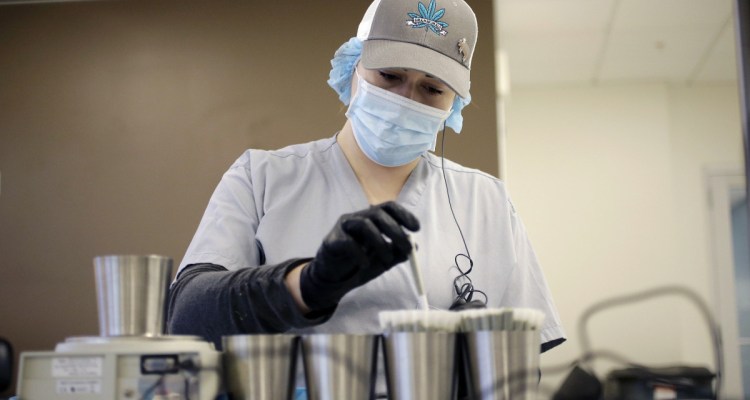Maine’s medical marijuana market is good for an estimated $50 million a year in sales, nearly all of it cash, almost none of which can be deposited in a federally insured bank.
That’s just one of the ways that federal law keeps the industry, legal under Maine statute, at arm’s length, making it less transparent, and less safe.
The STATES Act, recently introduced in the Senate, won’t address all those problems, but it is an achievable step in the right direction.
STATES’ RIGHTS
The Strengthening the Tenth Amendment Through Entrusting States Act, from Sens. Elizabeth Warren, D-Mass., and Cory Gardner, R-Colo., would legalize under federal law the possession, manufacture and sale of marijuana in states, like Maine, that have passed their own legislation approving the drug for recreational use. As long as states don’t legalize the sale to anyone under 21, and don’t allow sales at truck stops and rest areas, they could do as they like when it comes to pot.
By essentially leaving the issue up to the states, the bill would allow banks to accept deposits of cash that originate in marijuana-related businesses; it would take away the fear that the businesses may be prosecuted for violating federal law. Maine dispensaries and caregivers – and their vendors, landlords and employees – would no longer have to worry about the contradictory set of laws that make them members of the small business community in the eyes of Augusta but criminals as far as Washington, D.C., is concerned.
The absences of access to traditional banking means Mainers in the medical marijuana business – and soon enough in its recreational counterpart – often have to keep large stockpiles of cash around, making them a target.
The problem is bad now, business owners say. “If you want to keep the criminal element out of the industry, give us the banking system,” one Maine caregiver recently told the Portland Press Herald.
How much worse will it be when Maine’s recreational marijuana industry reaches $260 million a year in sales, as is expected by 2022?
What’s more, many marijuana businesses are paying an effective tax rate as high as 90 percent because they cannot take the federal standard business deduction, Gardner told NPR.
The STATES Act would solve those problems, though not others posed by the contradictions between federal and state marijuana laws.
NOT COMPREHENSIVE
It would, for instance, keep marijuana as a Schedule 1 drug alongside cocaine and heroin, meaning as far as the federal government is concerned, pot has no research or medicinal value.
The designation impedes research and the treatment of post-traumatic stress disorder, two areas where marijuana has shown promise. Patients, including veterans, are already using marijuana for pain and PTSD, and additional research could help make those treatments more effective.
Research is also needed to measure intoxication in drivers; current methods don’t do a particularly good job determining impairment.
The bill also does not address some other areas of conflict with federal law, such as whether medical users would be covered under the federal American with Disabilities Act, or if the FDA would take a different view of marijuana’s medicinal claims.
But given the problems with marijuana law – and considering what is attainable in a Congress that seems incapable of passing anything more – the STATES Act makes sense.
States like Maine passed marijuana legalization to pull a relatively harmless market out of the shadows, only to find it would have to keep one foot in the dark. The STATES Act would shine a little more light in there, to the benefit of thousands of Maine small businesses.
Send questions/comments to the editors.



Success. Please wait for the page to reload. If the page does not reload within 5 seconds, please refresh the page.
Enter your email and password to access comments.
Hi, to comment on stories you must . This profile is in addition to your subscription and website login.
Already have a commenting profile? .
Invalid username/password.
Please check your email to confirm and complete your registration.
Only subscribers are eligible to post comments. Please subscribe or login first for digital access. Here’s why.
Use the form below to reset your password. When you've submitted your account email, we will send an email with a reset code.